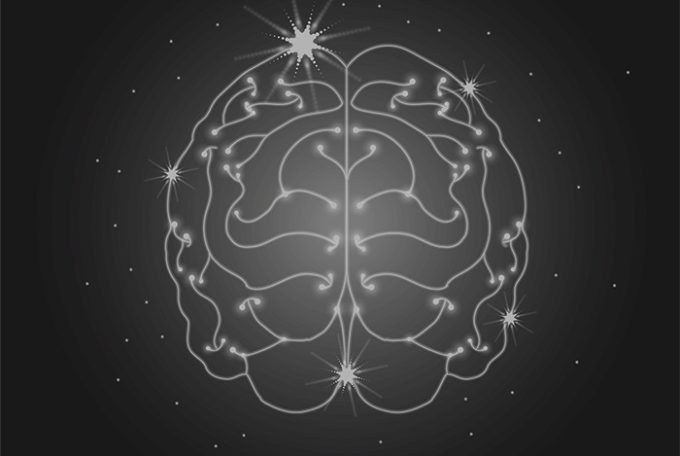 The medicinal benefits of cannabis use are pretty well established. There is numerous scientific research that verifies its efficiency when applied to a wide array of clinical applications reporting cannabis to relieve symptoms such as pain, nausea, glaucoma, and movement disorders. Marijuana is also well-known as an appetite stimulant, which can aid those living with dementia, cancer, AIDS wasting syndrome, etc. Recent studies even advocate the theory of cannabinoids and terpenes found in cannabis work to create homeostasis in the body and can protect against certain types of malignant tumors.
The medicinal benefits of cannabis use are pretty well established. There is numerous scientific research that verifies its efficiency when applied to a wide array of clinical applications reporting cannabis to relieve symptoms such as pain, nausea, glaucoma, and movement disorders. Marijuana is also well-known as an appetite stimulant, which can aid those living with dementia, cancer, AIDS wasting syndrome, etc. Recent studies even advocate the theory of cannabinoids and terpenes found in cannabis work to create homeostasis in the body and can protect against certain types of malignant tumors.
The legalization of medicinal marijuana debate has been going on for decades. A 1991 Harvard study found that 44% of oncologists have suggested cannabis to their patients as treatment. An additional fifty percent replied that they would advise the same if cannabis were deemed legal. Scientists at Providence Rhode Island Hospital determined in a more recent study that over half of physicians nationwide supported the legalization of medical marijuana.
There are currently over 60 U.S. and international health organizations such as the American Public Health Association, Health Canada, and the Federation of American Scientists who advocate the legalization of medical cannabis use when paired with doctor’s supervision. Organizations such as the American Cancer Society and the American Medical Association even call for the expedition of large-scale clinical research studies that can tap into the use of medicinal cannabis and its potential health benefits.
Safety and Efficacy
Cannabis is one of the safest, naturally therapeutic substances available for human consumption. According to the Substance Abuse and Mental Health Services Administration, which keeps a record of every substance-related deaths in the U.S., there has never been a cannabis-related death. Many studies have found it to be nearly impossible for a human to die from a cannabis overdose. In comparison, even the most common over-the-counter aspirin contains a lethal dosage.
Evidence has suggested the use of therapeutic cannabis dates as far back as 5,000 years ago. In the U.S., journals of medicine document the utilization and prescription of medicinal cannabis throughout the 19th and early 20th centuries. It was only until 1942 when the United States Pharmacopoeia dropped cannabis, and strict regulation began. However, it is still widely prescribed by doctors worldwide in countries such as Germany, Canada, the Netherlands, and Israel.
Therapeutic Benefits
The human body contains receptors that bind with cannabinoids found in the marijuana plant. This natural process has proven to provide therapeutic benefits for a variety of symptoms. These receptors develop in humans before birth, and the compounds have even been found in women’s breast milk.
The case for medical cannabis strengthens when reflecting on how the human body is biologically connected with cannabinoids. With the research to show how the plant can be a therapeutic alternative, the world is beginning to see a dramatic increase in support and acceptance. Every day, people across the globe report incredible personal anecdotes on the therapeutic benefits of cannabis and its by-products.
Cannabis & Digestion
Cannabis is commonly known as an appetite stimulant, with a stereotypical side effect being “the munchies”. Although comical, studies suggest this side effect can be of great use in treating a variety of medical ailments, including eating disorders. A recent study published by the International Journal of Eating Disorders advocates the effectiveness of cannabinoids in treating some cases of anorexia.
Researchers have also found cannabis use to provide a number of digestive benefits and even decrease feelings of nausea in some patients. Medical marijuana could alleviate a number of digestion-related health conditions, including:
Medical Marijuana and Pain Management
Physicians most commonly prescribe medical marijuana for those experiencing chronic pain. A 2013 survey conducted by The Spine Journal found 1 in every 5 patients at the Colorado Spine Center manage their pain with medicinal cannabis. From this sample, over 90% report moderate to significant relief when using marijuana for their chronic pain.
Studies suggest medical marijuana could offer relief for a variety of chronic pain conditions, including the following:
Cannabis & Mental Health
A popular argument and misconception of cannabis use is that it can cause adverse effects on users’ mental health. Although there has been no scientific evidence found to back the claims, large doses of tetrahydrocannabinol (THC) could prompt anxiety attacks in some patients. Other arguments suggest cannabis use can accelerate predisposed personality disorders; however, no studies can demonstrate instances of such cases occurring.
These arguments have prompted a spark in researching the relationship between cannabis and mental health conditions. As the research catalog continues to grow, a current list of studies exploring the benefits of cannabis and patient’s mental health is listed as follows:
- Alcoholism and Cannabis
- Opiate Withdrawal and Cannabis
- Depression and Cannabis
- Phobias and Cannabis
- Schizophrenia and Cannabis
Your Brain and Cannabis
Cannabinoid receptors found in the human brain before birth implies that the compounds are possibly linked to brain development. Studies have found cannabis assists in the formation of new brain neurons, known as neurogenesis, and increase brain plasticity. Researchers have also found cannabis to hold neuroprotective properties that may treat symptoms of certain neurological conditions.
- Alzheimer’s Disease and Cannabis
- Parkinson’s Disease and Cannabis
- Oxygen Deficits and Cannabis
- Migraines and Cannabis
Medical Marijuana and Cancer
Medical marijuana has been commonly prescribed for cancer treatments in countering the intense side effects of chemotherapy, such as nausea, pain, and vomiting. To further explore the potentials of medicinal marijuana, oncologists worldwide are beginning to conduct clinical trials studying whether it can treat cancer entirely.
There are many different routes that patients can take when applying medicinal cannabis to their treatment plans, Rick Simpson Oil being the most common. Because THC has a psychotropic effect, researchers have turned to cannabidiol (CBD) and other cannabinoids. A UK study suggests that CBD shows the most potential in treating cancer when applied with higher dosages. Other supporting research is listed below:
- Breast Cancer and Cannabis
- Brain Cancer and Cannabis
- Lung Cancer and Cannabis
- Skin Cancer and Cannabis
- Tumor Growth and Cannabis



